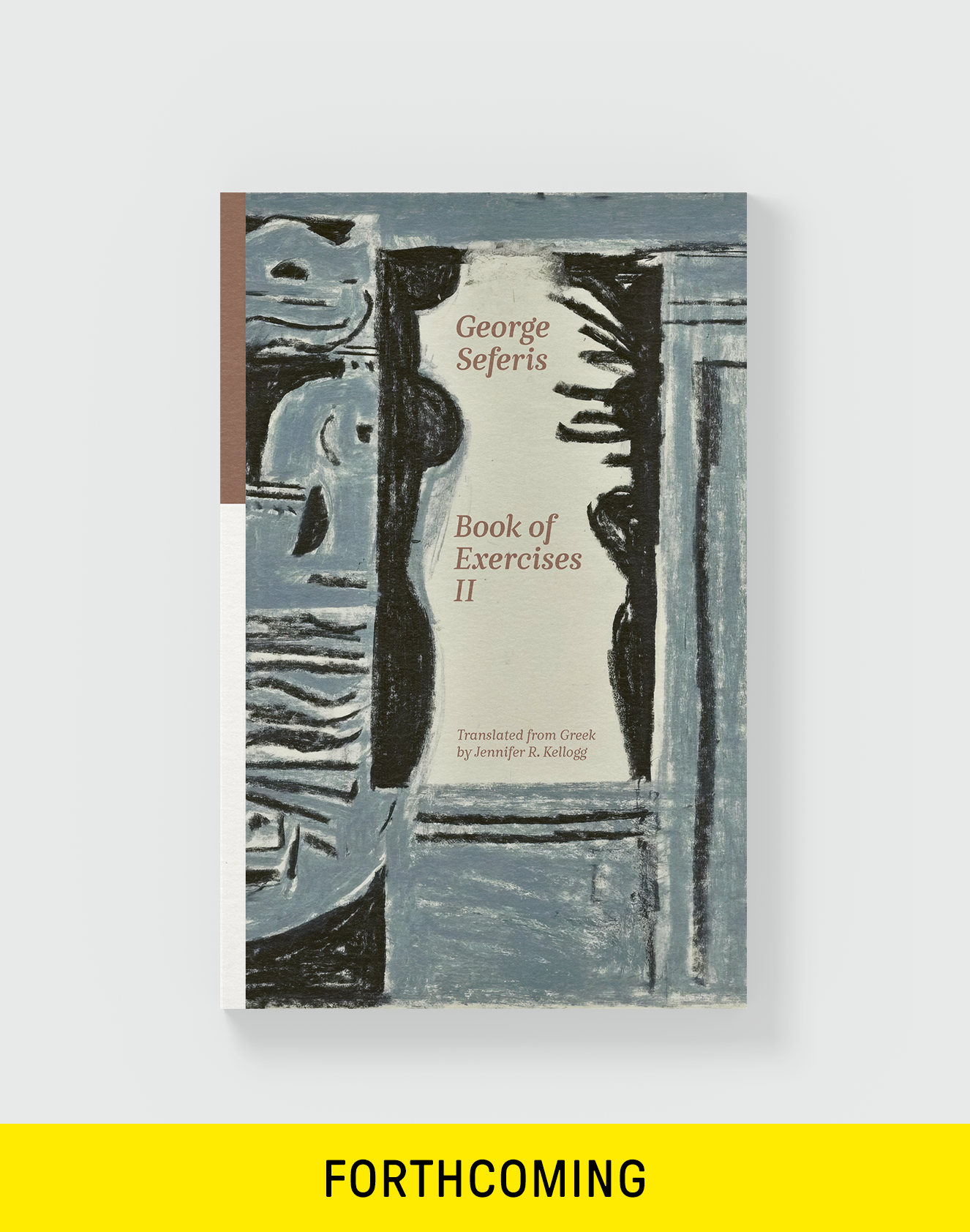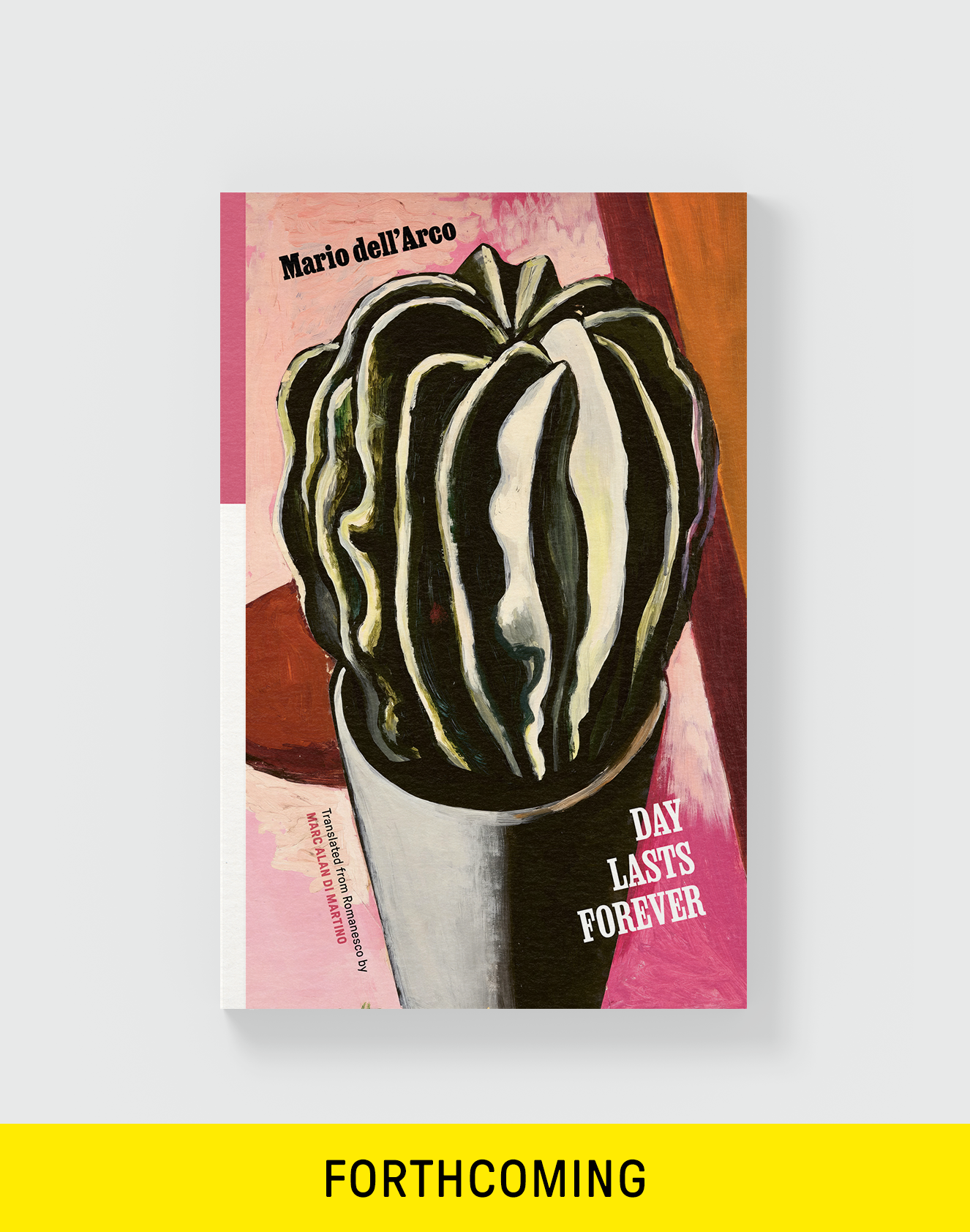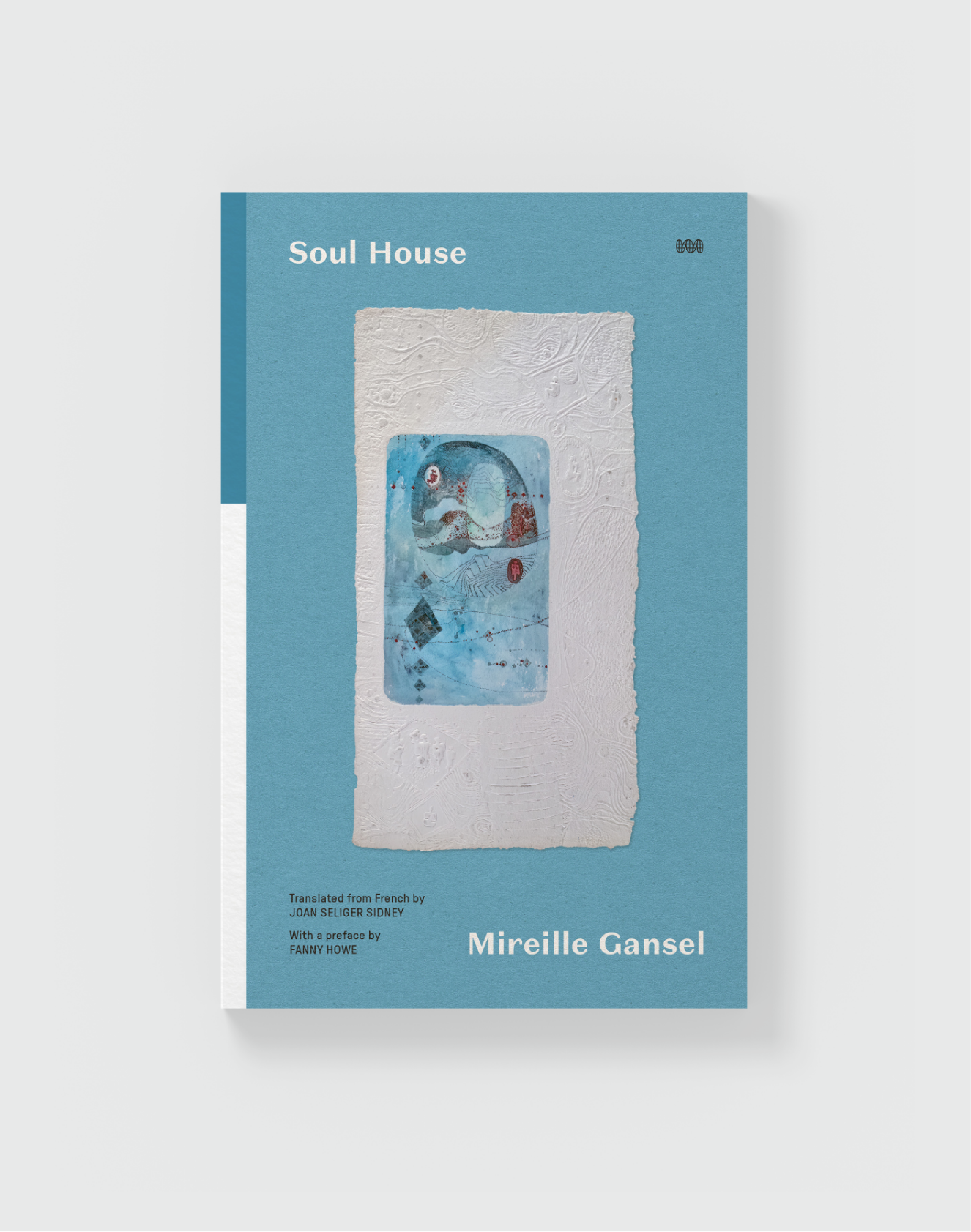Jazra Khaleed - The Light That Burns Us
Jazra Khaleed
The Light That Burns Us
Edited by
KAREN VAN DYCK
Translated from Greek by
PETER CONSTANTINE, VIKTORAS ILIOPOULOS, SARAH MCCANN, JASON RIGAS, MAX RITVO, ANGELOS SAKKIS, JOSEPHINE SIMPLE, BRIAN SNEEDEN, and KAREN VAN DYCK
Preface by
PETER CONSTANTINE
$20.00
192 pages
October 10, 2024
ISBN 978-1-954218-24-6
Distributed by Asterism (US) and Turnaround Publisher Services (UK & EU)
BIOS
JAZRA KHALEED is an Athens-based poet, translator, and filmmaker whose works focus on issues of working-class experiences and cultures, homeland and origin, immigration and war, and are an indictment of racism, social injustice, and classism in contemporary Greece. He has published four collections of poetry and his work is widely translated into European and Asian languages. English translations of his poems have appeared in The Guardian, Los Angeles Review of Books, World Literature Today, and elsewhere. He is a founding editor of the Athenian poetry magazine Teflon and specializes in translating political and experimental poetry into Greek. His short films have been featured at international film festivals. The Light That Burns Us is the first book of his poetry to appear in English translation.
KAREN VAN DYCK is the editor of Austerity Measures: The New Greek Poetry, which introduced Jazra Khaleed to a wider readership. She has written about the anthology and Khaleed’s poetry in The Guardian and PN Review. Other translations include Margarita Liberaki’s novel Three Summers, Maria Laina’s poetry collection Hers, and the co-edited anthology The Greek Poets: Homer to the Present. Her most recent book Αλλωνών/Lifted explores the ethics of making poems out of other people’s prose and translations. She is the Kimon A. Doukas Professor of Modern Greek Language and Literature in the Classics Department at Columbia University.
PETER CONSTANTINE’s recent translations include works by Augustine, Solzhenitsyn, Rousseau, Machiavelli, Gogol and Tolstoy. He is a Guggenheim Fellow and was awarded the PEN Translation Prize for Six Early Stories by Thomas Mann, and the National Translation Award for The Undiscovered Chekhov. He was an editor of A Century of Greek Poetry: 1900–2000, and the anthology The Greek Poets: Homer to the Present. He is Professor of Translation Studies at the University of Connecticut and the publisher of World Poetry Books.
VIKTORAS ILIOPOULOS is a literary translator and editor specializing in Modern Greek, Albanian, Macedonian and Czech literature. His most recent translations into English of the Greek Poet Eftychia Panayiotou appear in World Poetry Review. He holds a master’s degree in Balkan Studies from Charles University in Prague and is currently working with Peter Constantine on the documentation and conservation of Arvanitika, a severely endangered indigenous language of Greece.
SARAH MCCANN earned her MFA in Poetry at the University of Iowa Writers’ Workshop and now holds the Tyler Chair in Creative Writing at St. Mark’s School. She has been published in such journals as The Bennington Review, Margie, Midway Journal, and The South Dakota Review. Her Fulbright-funded translations from Modern Greek have been published in such anthologies and journals as Austerity Measures, Words Without Borders, Poetry International, and World Literature Today.
JASON RIGAS was born in New York City to parents from Nafpaktos, Greece. He received his PhD in Comparative Literature from Princeton, where he focused on translations of contemporary Greek migrant narratives and the literature of migration. He is currently working as a translator of poetry, fiction, and books for children.
MAX RITVO (1990–2016) wrote Four Reincarnations (Milkweed Editions) in New York and Los Angeles over the course of a long battle with cancer. He was also the author of The Final Voicemails, edited and introduced by Louise Glück, and co-authored Letters from Max with Sarah Ruhl. His chapbook Aeons was chosen by Jean Valentine to receive the Poetry Society of America Chapbook Fellowship in 2014. Ritvo’s poetry appeared in The New Yorker, Poetry, and Boston Review, among many other publications. His translations, with Peter Constantine, were published in Lyrikline, Tripwire, and in the anthology Austerity Measures.
ANGELOS SAKKIS was born in Greece and lives in Oakland, California. He is the co-translator, with John Sakkis, of poet and multimedia artist Demosthenes Agrafiotis’s Chinese Notebook (Ugly Duckling Presse). His own work has appeared in Ambush Review, Try, and Hellenic Voices. His chapbooks Memory-of and Fictional Character were published by Zarax Books,, and his chapbook Travel log with Homer on my mind 2011 was published by Both-Both Books. With Jack Hirschman he co-translated Food Line by Sotirios Pastakas (Forepaw Press).
JOSEPHINE SIMPLE is a writer, translator, and performer. She has written humor pieces for The New Yorker, made videos for Slate, and published poetry and translations in World Literature Today, Poetry International, and other magazines. She has performed in experimental and comedy venues across New York City including the Fringe Festival, the Exponential Festival, the PIT, and the UCB.
BRIAN SNEEDEN is the author of the poetry collection, Last City (Carnegie Mellon). His translations have received an NEA Literature Translation Fellowship, the World Literature Today Translation Award for Poetry, the Constantinides Memorial Translation Prize, a PEN/Heim Translation Grant, and other recognitions. His translations of Greek poet Phoebe Giannisi include Cicada (New Directions) which was shortlisted for the National Translation Award. He is a senior lecturer in creative writing and publishing at Manchester Metropolitan University.
Jazra Khaleed
The Light That Burns Us
Edited by
KAREN VAN DYCK
Translated from Greek by
PETER CONSTANTINE, VIKTORAS ILIOPOULOS, SARAH MCCANN, JASON RIGAS, MAX RITVO, ANGELOS SAKKIS, JOSEPHINE SIMPLE, BRIAN SNEEDEN, and KAREN VAN DYCK
Preface by
PETER CONSTANTINE
The English-language debut of Jazra Khaleed, one of Greece’s most radical poetic voices—now in an expanded edition—is an unapologetic indictment of the wrongs faced by immigrants, by a rudderless young European generation, by leftist activists in a Greece and a Europe blighted by neoliberal policies of deregulation and privatization.
Born in Chechnya in 1979, Khaleed is a poet who seems very Greek and not Greek at all. Employing elegant rhythms, contemporary street speech, and flashes of Byzantine and New Testament Greek, his poetry reflects a refined erudition and control that Greek readers have trouble equating with a man named Jazra. Khaleed's poems—written at times from a very personal perspective, and at others from that of an objective outsider, but always disruptive, vehement, electrifying—tear the untroubled reader back to a reality that may well be dangerous.
“Jazra Khaleed's razor-wire-sharp poems are indispensable missives from other war zones to our contemporary moment of mass protests, campus occupations, and, as Darwish termed it, states of siege. A vital voice for the current age.” —Mark Nowak
“The poems in The Light that Burns Us infect us with a revolutionary contagion propagating itself within and against the circuits of capitalist and State discipline. Yet, they do much more than that—they eulogize lives destroyed by borders, they narrate and interrupt themselves dancing on rubble, they laugh sardonically, they have fun as they move through a language occupying many poetic registers at once. From cut-up experiment to lyrical address, from poems as forceful as a hurled stone to poems that speak tenderly for what’s been lost to capitalist colonization, the range in this book speaks to Khaleed’s hostility toward the violence of homogenizing forces, whether in literature or in life. In the process, he carves out a space where poetry and its languages spring forth from the uncontrollable passions of the body, which is right where his lines will hit you. This selection of Khaleed’s work for English-language readings constitutes an important intervention into staid poetic tradition as well as the numbing stability of our daily existence.” —Tony Iantosca
“…an explosive cadence… Khaleed’s sentiment toward the would-be aesthetes seems clear: ‘Fuck off, flower poets.’” —David Wallace, The New Yorker
“Khaleed stands up to fascism by writing and performing Greek-language poetry that is unmatched in technical bravura, emotional depth, and political urgency. He performs his poetry at a lightning clip—so fast the Nazis can barely keep up, let alone talk back—a hip-hop emcee in a fever." —Max Ritvo, LA Review of Books
“…agitated and delirious and necessary.” —Lotte L.S., Mute
“...these poems deserve their place in Poetry and American Poetry Review and in the curriculum of graduate schools, yet the project here aims beyond literary acceptance or enhanced status in the academy toward the gritty, unresolvable truth of the refugee experience. The voice here longs for all that the displaced long for—food, home, dignity, hope, justice. [Khaleed’s] visceral oneness with the poorest of the poor grants a voice to the voiceless. Because of the eloquent force of that voice, the rages, despairs, and hopes of the refugee have been given agency in the wider world of art and ideas.” —John Whalen, Colorado Review
“As a whole, these translations point to the collective love that gave them shape—a love for Khaleed’s own Greek and for the Greek language more broadly… Thoughtful and linguistically careful, Khaleed’s English debut plants the right beat in our chests.” —Panagiota Stoltidou, Hopscotch Translation
BIOS
JAZRA KHALEED is an Athens-based poet, translator, and filmmaker whose works focus on issues of working-class experiences and cultures, homeland and origin, immigration and war, and are an indictment of racism, social injustice, and classism in contemporary Greece. He has published four collections of poetry and his work is widely translated into European and Asian languages. English translations of his poems have appeared in The Guardian, Los Angeles Review of Books, World Literature Today, and elsewhere. He is a founding editor of the Athenian poetry magazine Teflon and specializes in translating political and experimental poetry into Greek. His short films have been featured at international film festivals. The Light That Burns Us is the first book of his poetry to appear in English translation.
KAREN VAN DYCK is the editor of Austerity Measures: The New Greek Poetry, which introduced Jazra Khaleed to a wider readership. She has written about the anthology and Khaleed’s poetry in The Guardian and PN Review. Other translations include Margarita Liberaki’s novel Three Summers, Maria Laina’s poetry collection Hers, and the co-edited anthology The Greek Poets: Homer to the Present. Her most recent book Αλλωνών/Lifted explores the ethics of making poems out of other people’s prose and translations. She is the Kimon A. Doukas Professor of Modern Greek Language and Literature in the Classics Department at Columbia University.
PETER CONSTANTINE’s recent translations include works by Augustine, Solzhenitsyn, Rousseau, Machiavelli, Gogol and Tolstoy. He is a Guggenheim Fellow and was awarded the PEN Translation Prize for Six Early Stories by Thomas Mann, and the National Translation Award for The Undiscovered Chekhov. He was an editor of A Century of Greek Poetry: 1900–2000, and the anthology The Greek Poets: Homer to the Present. He is Professor of Translation Studies at the University of Connecticut and the publisher of World Poetry Books.
VIKTORAS ILIOPOULOS is a literary translator and editor specializing in Modern Greek, Albanian, Macedonian and Czech literature. His most recent translations into English of the Greek Poet Eftychia Panayiotou appear in World Poetry Review. He holds a master’s degree in Balkan Studies from Charles University in Prague and is currently working with Peter Constantine on the documentation and conservation of Arvanitika, a severely endangered indigenous language of Greece.
SARAH MCCANN earned her MFA in Poetry at the University of Iowa Writers’ Workshop and now holds the Tyler Chair in Creative Writing at St. Mark’s School. She has been published in such journals as The Bennington Review, Margie, Midway Journal, and The South Dakota Review. Her Fulbright-funded translations from Modern Greek have been published in such anthologies and journals as Austerity Measures, Words Without Borders, Poetry International, and World Literature Today.
JASON RIGAS was born in New York City to parents from Nafpaktos, Greece. He received his PhD in Comparative Literature from Princeton, where he focused on translations of contemporary Greek migrant narratives and the literature of migration. He is currently working as a translator of poetry, fiction, and books for children.
MAX RITVO (1990–2016) wrote Four Reincarnations (Milkweed Editions)in New York and Los Angeles over the course of a long battle with cancer. He was also the author of The Final Voicemails, edited and introduced by Louise Glück, and co-authored Letters from Max with Sarah Ruhl. His chapbook Aeons was chosen by Jean Valentine to receive the Poetry Society of America Chapbook Fellowship in 2014. Ritvo’s poetry appeared in The New Yorker, Poetry, and Boston Review, among many other publications. His translations, with Peter Constantine, were published in Lyrikline, Tripwire, and in the anthology Austerity Measures.
ANGELOS SAKKIS was born in Greece and lives in Oakland, California. He is the co-translator, with John Sakkis, of poet and multimedia artist Demosthenes Agrafiotis’s Chinese Notebook (Ugly Duckling Presse). His own work has appeared in Ambush Review, Try, and Hellenic Voices. His chapbooks Memory-of and Fictional Character were published by Zarax Books,, and his chapbook Travel log with Homer on my mind 2011 was published by Both-Both Books. With Jack Hirschman he co-translated Food Line by Sotirios Pastakas (Forepaw Press).
JOSEPHINE SIMPLE is a writer, translator, and performer. She has written humor pieces for The New Yorker, made videos for Slate, and published poetry and translations in World Literature Today, Poetry International, and other magazines. She has performed in experimental and comedy venues across New York City including the Fringe Festival, the Exponential Festival, the PIT, and the UCB.
BRIAN SNEEDEN is the author of the poetry collection, Last City (Carnegie Mellon). His translations have received an NEA Literature Translation Fellowship, the World Literature Today Translation Award for Poetry, the Constantinides Memorial Translation Prize, a PEN/Heim Translation Grant, and other recognitions. His translations of Greek poet Phoebe Giannisi include Cicada (New Directions) which was shortlisted for the National Translation Award. He is a senior lecturer in creative writing and publishing at Manchester Metropolitan University.
PRESS
Reviewed by Eleni Sakellis for The National Herald
Reviewed by Panagiota Stoltidou for Hopscotch Translation














